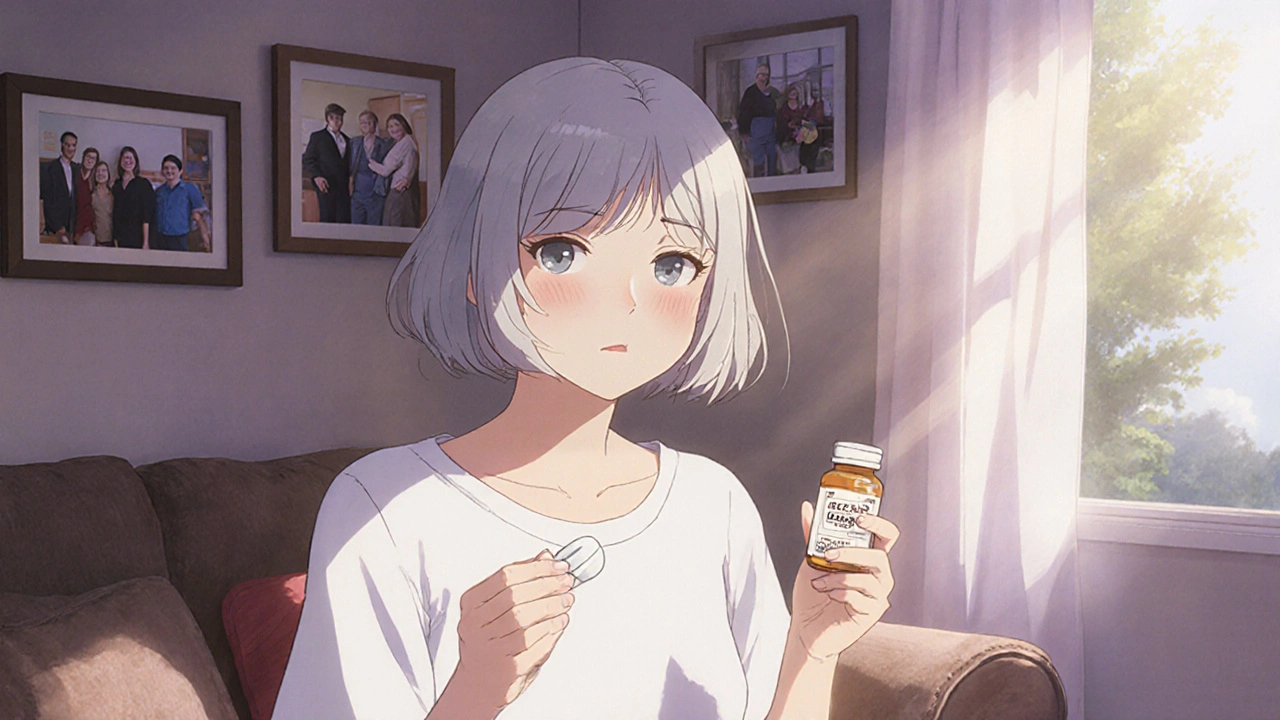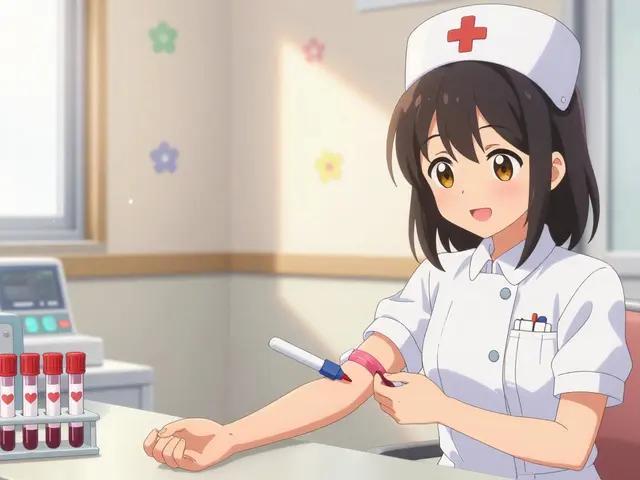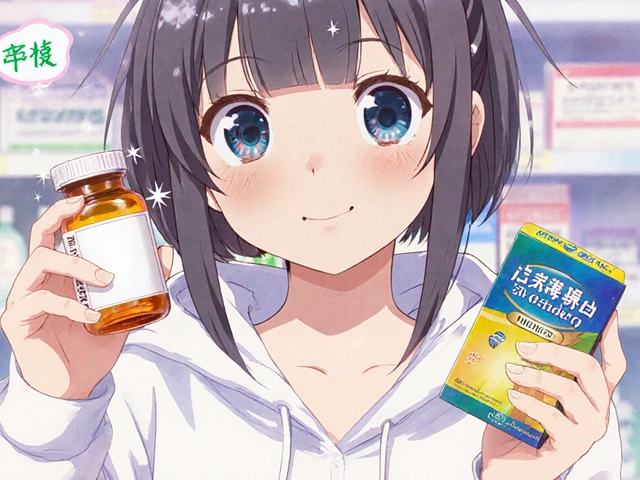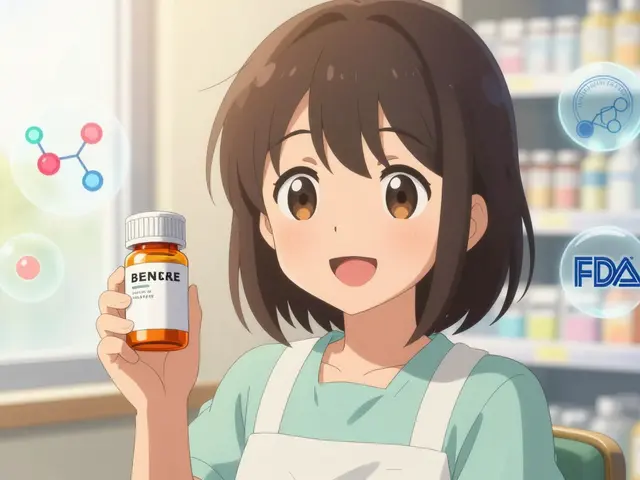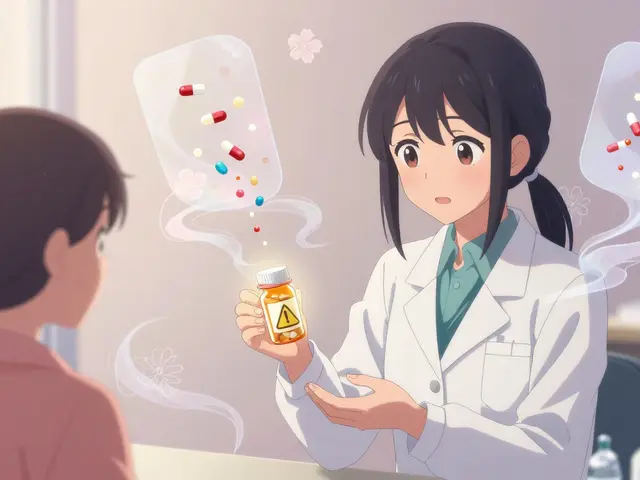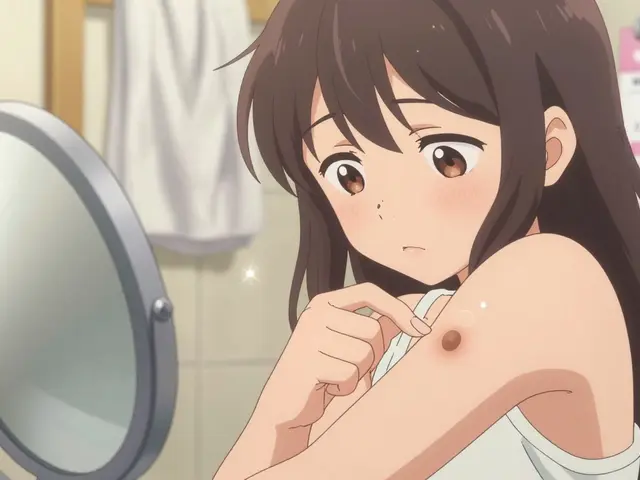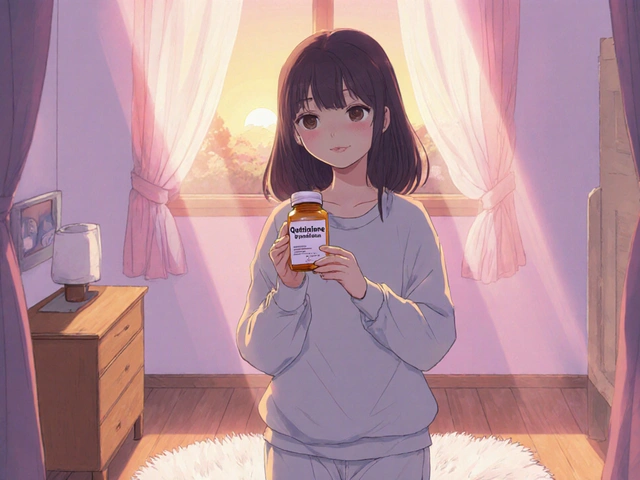Why do some people refuse generic drugs-even when they’re cheaper and just as effective?
It’s not about science. It’s not even about cost. It’s about the story they’ve been told.
Take Maria, a 58-year-old teacher from Ottawa. She’s been on blood pressure medication for over a decade. When her pharmacist switched her to the generic version, she refused to pick it up. "I don’t trust it," she said. "The brand was the one my doctor first prescribed. It’s the one that worked. This one? It’s just a copy. It doesn’t feel right."
She wasn’t alone. Studies show nearly 40% of patients in North America express hesitation or outright distrust toward generic medications-even when clinical trials prove they’re bioequivalent. And yet, the science is clear: generics contain the same active ingredients, in the same doses, with the same purity standards as brand-name drugs. So why the resistance?
The answer lies in narrative medicine-a field born not in a lab, but in the quiet spaces between doctor and patient, where stories are told, heard, and believed.
What is narrative medicine-and why does it matter for generics?
Narrative medicine isn’t therapy. It’s not counseling. It’s not even about writing poetry.
It’s the practice of listening deeply to how people describe their illness, their treatment, their fears, and their hopes. It’s recognizing that a patient’s experience isn’t just data on a chart-it’s a story with characters, turning points, and emotional weight.
This approach was formalized in 1996 by Dr. Rita Charon at Columbia University. She noticed that doctors were trained to diagnose symptoms, not understand suffering. Patients would say, "I feel like I’m falling apart," and clinicians would translate that into "anxiety" or "depression"-and move on. But what if the real issue wasn’t the diagnosis, but the story behind it?
Charon called this skill "narrative competence": the ability to listen, absorb, interpret, and respond to the stories people tell about their health. And when it comes to generic medications, that competence makes all the difference.
Think about it: when you’re prescribed a pill with a colorful logo, a name you’ve seen on TV for years, and a price tag that feels like "quality," your brain doesn’t just process it as a chemical compound. It processes it as a symbol. A promise. A trusted character in your personal health story.
When that pill gets swapped for a white tablet with no logo and a barcode, your brain doesn’t see equivalence. It sees erasure.
How brand stories create invisible barriers to acceptance
Brands don’t just sell drugs-they sell safety. They sell continuity. They sell peace of mind.
Pharmaceutical companies spend billions on advertising not to explain how their drug works, but to build emotional narratives. "This is the pill that gave me my life back." "This is the one my doctor trusts." "This is the one I’ve always taken."
These aren’t just slogans. They’re stories that stick. And once they’re embedded in a patient’s identity, switching to a generic feels like betrayal-not of science, but of self.
One 2023 study in The Permanente Journal found that patients who had been on a brand-name drug for more than five years were 2.3 times more likely to reject its generic equivalent-even when their doctor explained the equivalence in detail. The reason? They didn’t feel heard.
When a clinician says, "It’s the same thing," they’re speaking the language of data. But the patient is speaking the language of memory. Of ritual. Of trust built over years.
Narrative medicine teaches providers to pause. To ask: "What does this medication mean to you?" Not: "Do you understand it’s the same?"
That small shift-from correcting to connecting-changes everything.
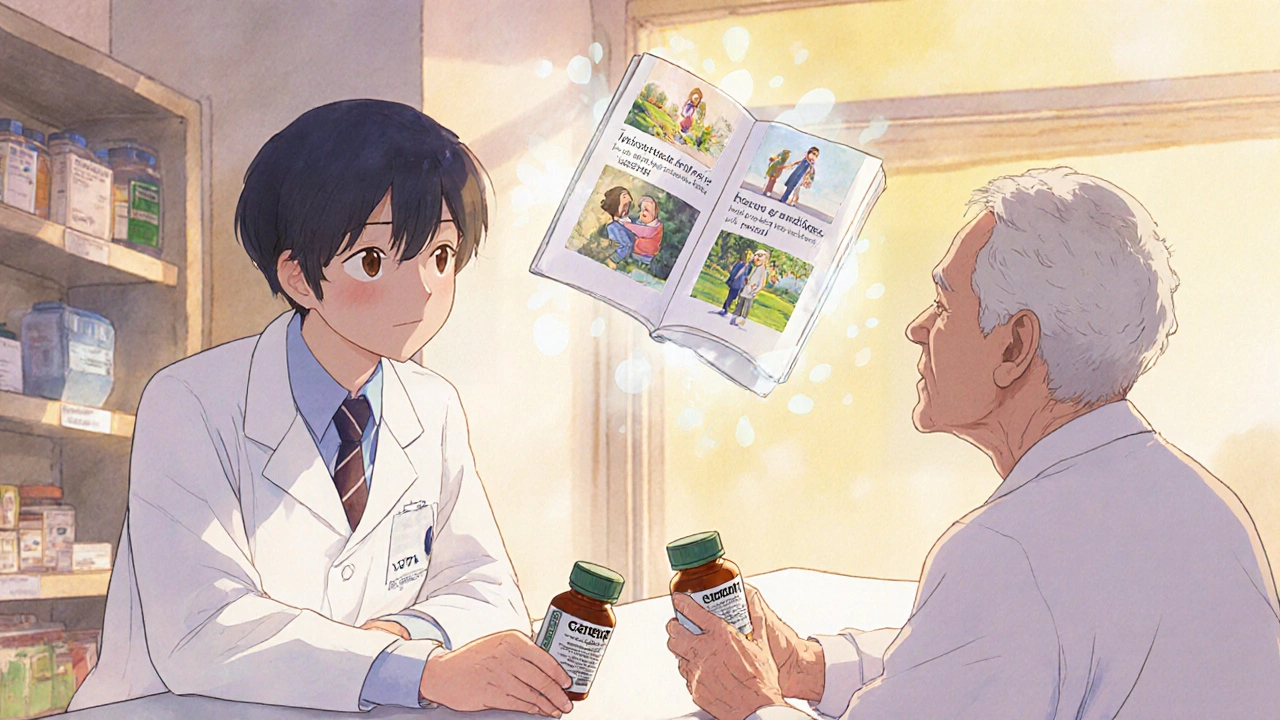
Real stories, real outcomes: How listening changes behavior
At the University of Kentucky’s narrative medicine program, patients with chronic conditions are invited to write or speak about their health journey. One participant, a man with Type 2 diabetes, described his insulin as "my lifeline, my shield." When his provider switched him to a generic version without discussing his feelings, he stopped taking it. He didn’t think it was unsafe-he thought it was unfair.
After a narrative session, he was asked: "What did that insulin do for you?" He replied, "It let me see my granddaughter grow up."
His provider didn’t argue. She didn’t cite bioequivalence studies. She said: "That’s powerful. And the generic you’re being offered? It does the same thing. It’s not a replacement. It’s a continuation."
He started taking it the next day.
This isn’t magic. It’s methodology.
Narrative medicine uses structured listening, reflective writing, and guided storytelling to help patients reclaim agency. It doesn’t erase the brand story-it expands it. It says: Your story matters. And your health doesn’t depend on the label on the bottle.
At Columbia’s program, medical students spend hours analyzing memoirs of illness. They learn to spot metaphors: "My body is a battlefield," "The pills are my armor," "I’m a ghost in my own skin." These aren’t poetic flourishes-they’re windows into how patients experience treatment.
When a student learns to hear the fear behind "I don’t trust generics," they don’t respond with a pamphlet. They respond with: "Tell me about the first time you took your medication. What did that moment feel like?"
Why clinicians resist narrative medicine-and how to change that
Not everyone believes stories belong in medicine.
Some doctors think it’s a waste of time. "I have 12 minutes per patient," they say. "I don’t have time for storytelling."
But here’s the truth: skipping the story takes longer.
When a patient refuses a generic drug, they come back. They call the office. They demand a brand-name prescription. They switch providers. They stop taking meds altogether. All of that costs time, money, and health.
Meanwhile, spending five minutes listening to a patient’s story about their medication can prevent weeks of non-adherence.
And it’s not just about patients. Clinicians burn out because they feel like they’re treating symptoms, not people. Narrative medicine helps them reconnect with why they became doctors in the first place.
A 2023 study showed that pediatric residents who participated in weekly narrative sessions reported a 32% drop in burnout symptoms. Why? Because they finally felt like they were seeing the whole person-not just the lab results.
The resistance isn’t about time. It’s about fear. Fear that stories are unscientific. Fear that emotion undermines expertise. But narrative medicine doesn’t replace science. It completes it.
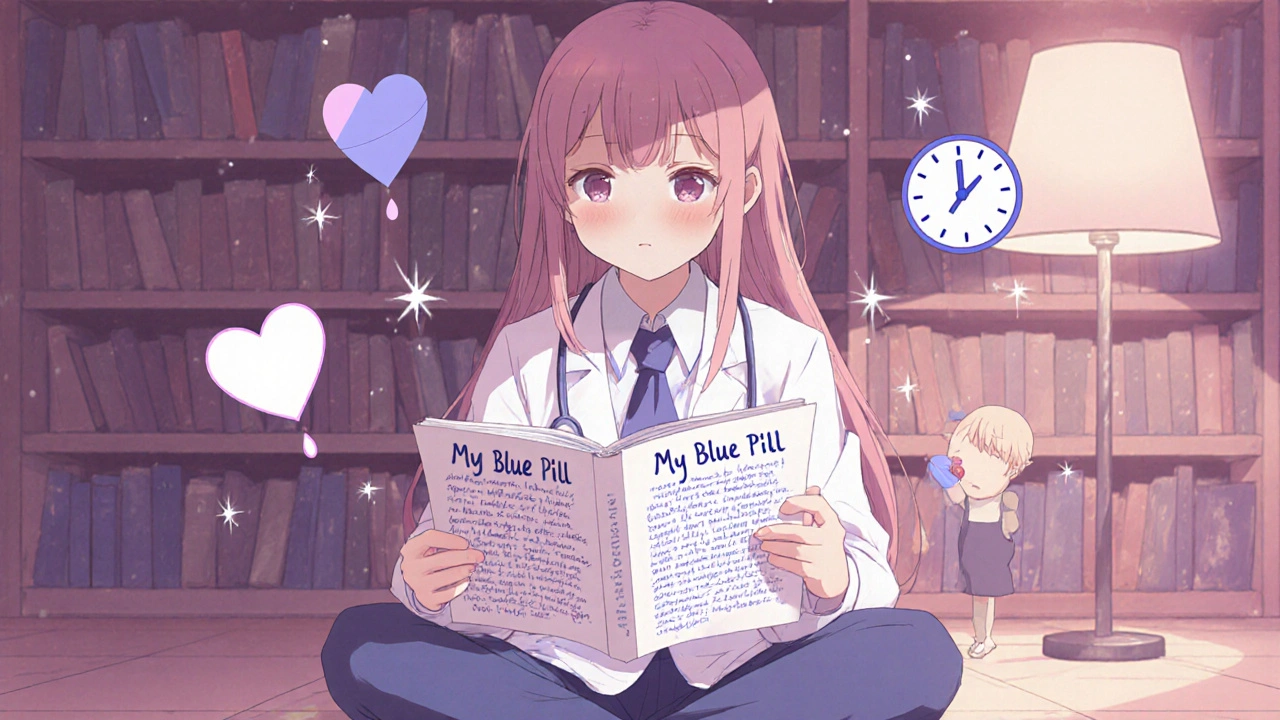
How to use narrative medicine to improve generic drug acceptance
If you’re a clinician, pharmacist, or health advocate, here’s how to start using narrative medicine to build trust around generics:
- Ask, don’t assume. Instead of saying, "This is the same," try: "What’s your experience been with your current medication?"
- Validate the story. Say: "It makes sense that you’d feel attached to the one that helped you feel better. That’s important."
- Reframe, don’t replace. Don’t say "This is just as good." Say: "This is the same medicine, in the same dose, made to the same standard. It’s not a downgrade. It’s a continuation."
- Use shared language. If a patient says, "I need my blue pill," and the generic is white, don’t say, "Color doesn’t matter." Say: "The active ingredient is identical. The blue pill helped you feel better. This one will too."
- Offer choice. If a patient still resists, ask: "What would make you feel comfortable trying it?" Maybe it’s a short trial. Maybe it’s a follow-up call. Give them control.
One pharmacist in Toronto started keeping a small notebook in the pharmacy. Each time a patient hesitated over a generic, she wrote down their reason-without judgment. After six months, she noticed patterns: "I’ve always taken this one," "My mom took this brand," "I’m scared it won’t work." She started using those exact phrases in her conversations. Acceptance rates jumped by 47%.
The future of generics isn’t in chemistry-it’s in connection
Generic drugs are one of the most powerful tools we have to make healthcare affordable. But their success doesn’t depend on price or purity.
It depends on whether patients believe they’re still getting the same care.
Narrative medicine doesn’t ask you to stop being a scientist. It asks you to become a storyteller too.
Because in the end, health isn’t just about what’s in the pill.
It’s about what the pill means.
And that meaning? It’s written in stories-not in clinical trials.
Are generic drugs really the same as brand-name drugs?
Yes. By law, generic drugs must contain the same active ingredient, in the same strength, and meet the same purity and performance standards as the brand-name version. They’re tested for bioequivalence-meaning they work the same way in the body. The only differences are in inactive ingredients (like color or filler), packaging, and price. These don’t affect how the drug works.
Why do patients distrust generics even when they’re proven safe?
It’s not about science-it’s about story. Many patients associate their brand-name drug with the moment they first felt better. That drug becomes part of their identity. Switching to a generic can feel like losing something personal, even if the chemical is identical. Narrative medicine helps clinicians understand and honor that emotional connection instead of dismissing it.
Can narrative medicine really improve medication adherence?
Yes. Studies show that when patients feel heard, they’re more likely to follow treatment plans. One program at the University of Kentucky found that patients who participated in narrative sessions were 40% more likely to continue taking their prescribed meds-even when switched to generics. The key wasn’t information. It was validation.
How can pharmacists use narrative medicine in daily practice?
Start by listening. When a patient hesitates, ask: "What’s your experience been with your current medication?" Don’t correct. Don’t argue. Acknowledge their feelings. Then gently reframe: "This version has the same active ingredient. It’s not a downgrade-it’s a continuation of the care you’ve already trusted." Small shifts like this build trust over time.
Is narrative medicine only for doctors?
No. Nurses, pharmacists, social workers, and even administrative staff can use narrative techniques. At the VA and Columbia University, these methods are now part of training for all healthcare professionals. It’s not about having a medical degree-it’s about having an open ear and a respectful heart.
What comes next?
Generic drugs aren’t going away. In fact, they’re becoming more common as healthcare systems look for ways to cut costs without sacrificing care.
But if we want patients to actually take them, we need to stop treating their resistance as ignorance.
It’s not a knowledge gap. It’s a meaning gap.
Fixing that means learning to listen-not just to what patients say, but to what they’re afraid to say.
And sometimes, that’s the most powerful prescription of all.

